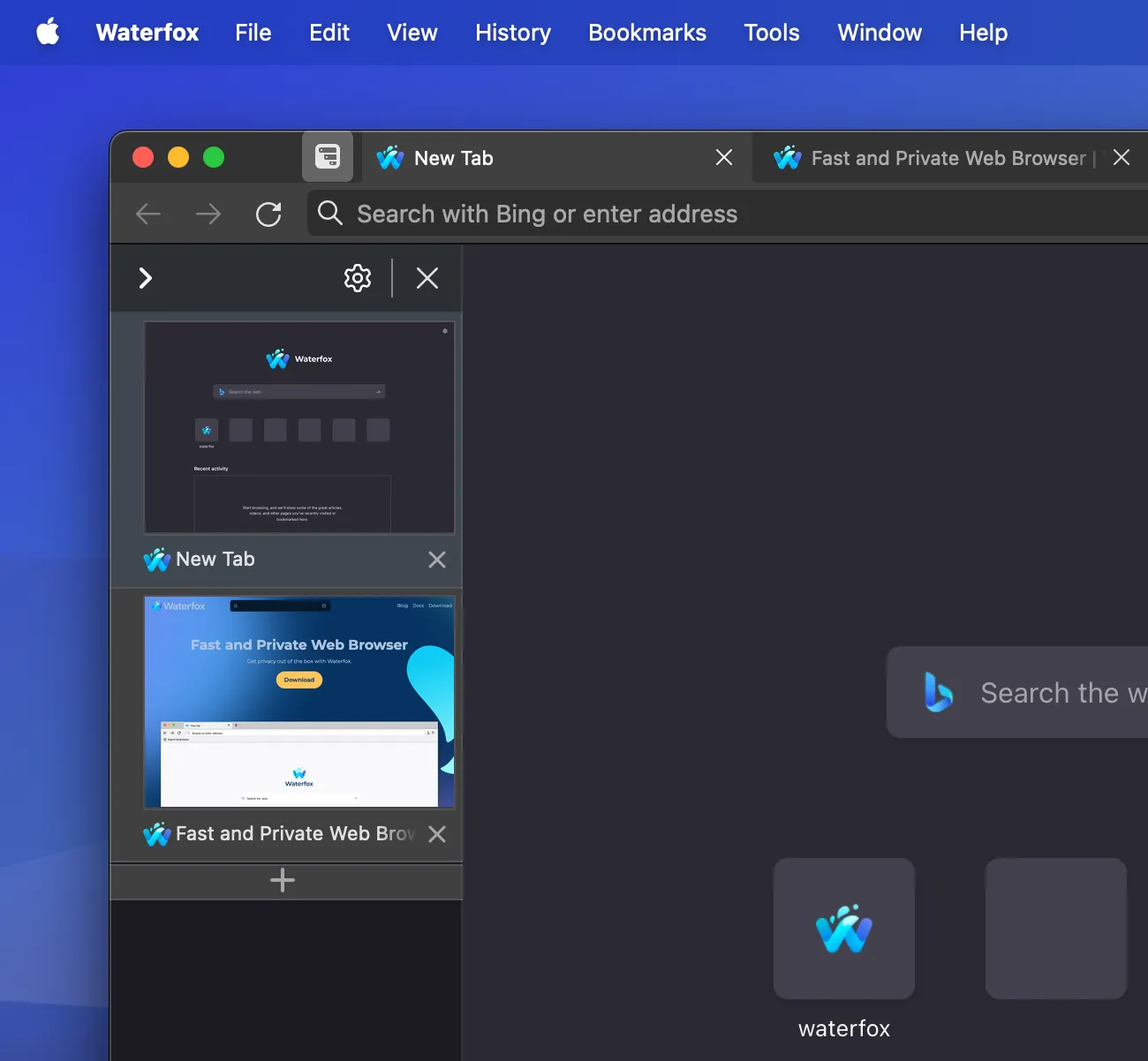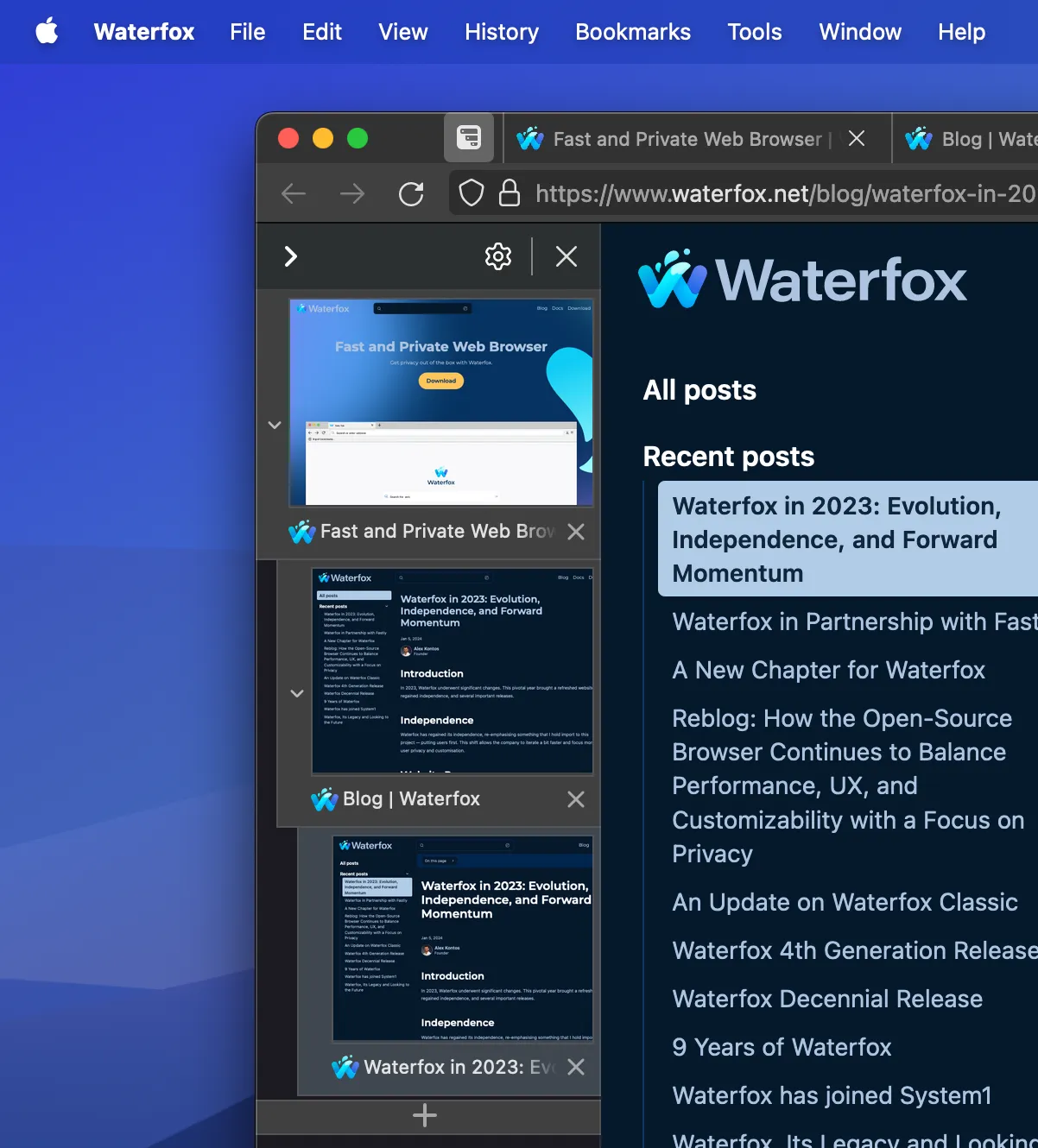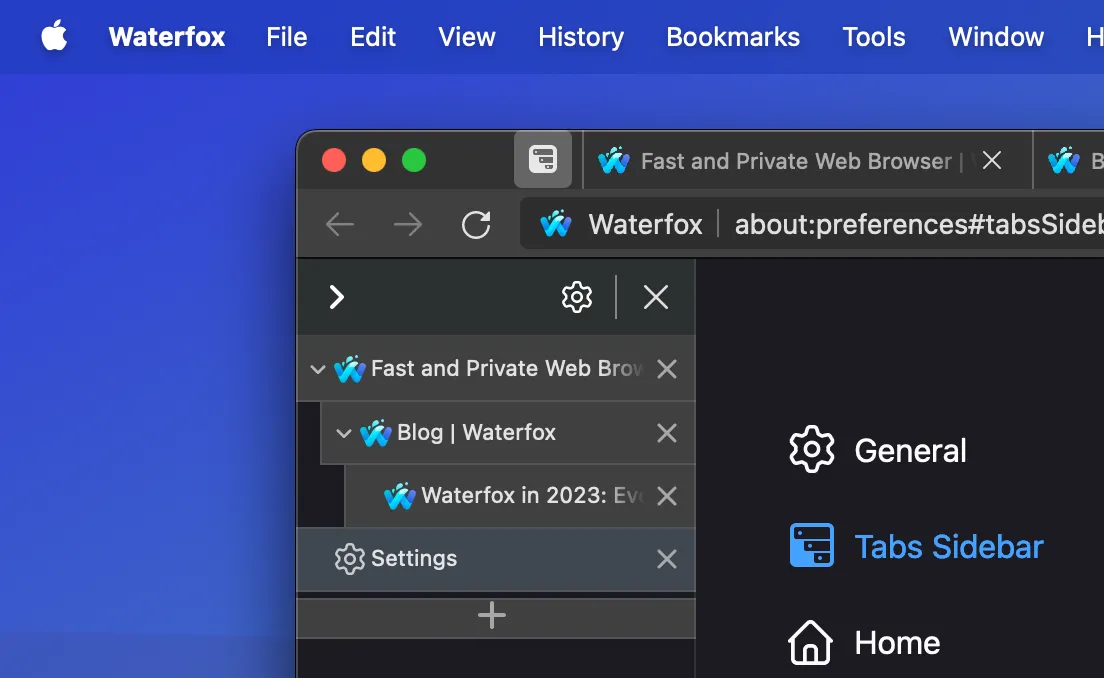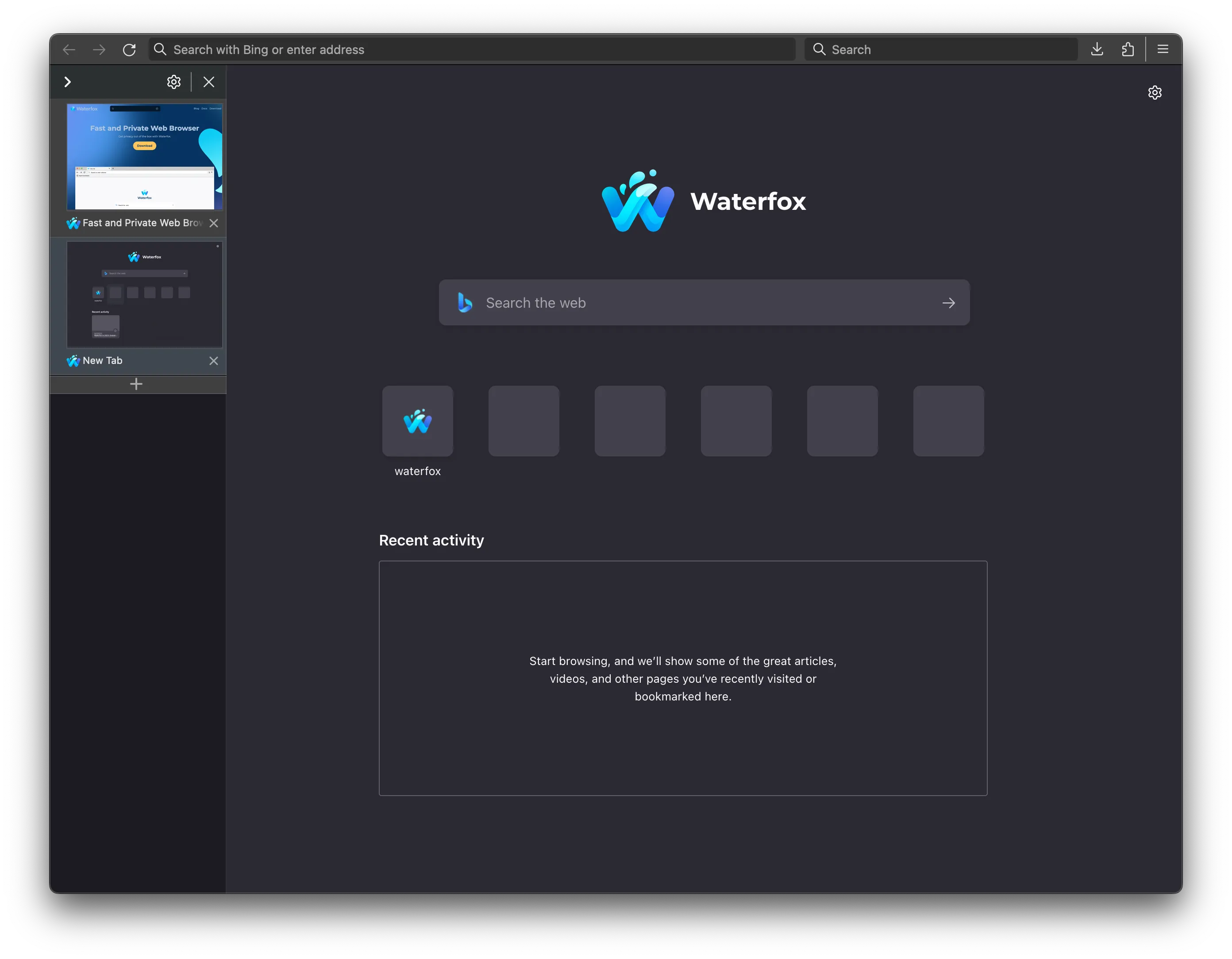Introducing Waterfox Private Search (Beta)
Announcing Waterfox Private Search
Section titled “Announcing Waterfox Private Search”Today, I’m excited to introduce Waterfox Private Search, now available in open beta. This represents an important step in our journey toward creating a more independent and privacy-respecting browsing experience.
Waterfox Private Search is a meta-search engine that I’ve developed with a clear goal: to eventually serve as the default search option for Waterfox, reducing our dependency on Microsoft and other intermediaries who typically serve as gatekeepers between you and your search results.
Why Build Our Own Search?
Section titled “Why Build Our Own Search?”The search experience has become increasingly compromised over the years. What was once a straightforward interaction has become cluttered with intrusions that degrade the user experience and compromise privacy:
- Pop-ups constantly nudging you to install mobile apps (cough Google App cough)
- Full-page banners interrupting your search flow
- CAPTCHAs and bot filters creating friction
- Cross-correlation between your search behavior and advertising profiles
More fundamentally, the financial relationship between browsers and search engines creates misaligned incentives. When a browser receives revenue for setting a particular search engine as default, the browser’s interests become divided between serving users and serving search partners.
By developing our own search solution, we’re working to realign these incentives with your interests.
How Waterfox Private Search Works
Section titled “How Waterfox Private Search Works”Unlike traditional search engines that build profiles of your search history, Waterfox Private Search acts as a privacy-preserving proxy between you and search results. Each query is treated as completely fresh, as if it were coming from a new device.
This approach offers several key benefits:
- No persistent user profiles that track your search history
- Complete separation between advertising and search behavior
- Freedom from intrusive redirects and banners
- A cleaner, more straightforward search interface
- Protection from common tracking mechanisms
We’ve also included some features that enhance the search experience in ways big search engines often make difficult to access:
- Domain blocklists to filter out unwanted sites from your results
- The ability to switch between different search backends (coming soon)
- Custom themes and appearance options
- Advanced search operators made more accessible
- Control over links opening in a new tab
Beta Limitations
Section titled “Beta Limitations”During this initial beta period, we’re using Google as our only search backend while we fine-tune our systems and gather user feedback. This allows us to focus on perfecting the core experience before expanding to multiple search providers. In future updates, we plan to add the ability to switch between different search engines according to your preference.
NO AI BULLSHIT
Section titled “NO AI BULLSHIT”Let me be absolutely clear: Waterfox Private Search does not use AI to “summarise” content or redirect traffic away from original websites. We won’t steal views from content creators by scraping their work and presenting it as AI-generated summaries.
When you search for something, we’ll give you actual links to the real websites where information lives, not AI-generated approximations that may be inaccurate or deprive creators of their audience. The web is built on the idea of interconnected sites created by real people, and we respect that fundamental structure.
Sustainable and Fair Revenue Model
Section titled “Sustainable and Fair Revenue Model”We’re planning two approaches to make Waterfox Private Search sustainable:
-
A free tier supported by privacy-friendly advertisements that don’t track your search history or build profiles about you. These will be contextual ads based solely on your current search, not your past behavior.
-
Eventually, a subscription-based tier that removes all advertisements completely for those who prefer an entirely ad-free experience.
I want to be transparent: the long-term viability of Waterfox Private Search as our default option depends entirely on our ability to monetise it in a sufficient, sustainable way. The reality of running a search service is that it requires significant resources – both in terms of infrastructure and ongoing development.
If we can’t generate enough revenue through privacy-respecting ads and subscriptions to support these costs, we may need to reconsider our approach. This is the challenge of building privacy-first alternatives to services that are traditionally funded through invasive data collection. We’re committed to finding a path that works, but it will require both innovation on our part and support from the community.
A Note About Ad Blockers
Section titled “A Note About Ad Blockers”I understand that many Waterfox users are privacy-conscious and commonly use ad blockers. While I fully respect your right to control what loads in your browser, I’d like to gently ask that you consider disabling your ad blocker when using Waterfox Private Search.
The ads we show are contextual (based only on your current search, not your history), non-intrusive, and don’t track you across the web. They represent our primary means of making this service sustainable while respecting your privacy.
If you appreciate having a privacy-focused search alternative that isn’t controlled by big tech, allowing these minimally invasive ads is one of the most direct ways you can support the project’s continued development and independence.
The Path Forward
Section titled “The Path Forward”This beta release is just the beginning. We’re launching it now to gather feedback and refine the experience before eventually making it the default search option in Waterfox. This transition will be an important step in creating a more independent browser that isn’t financially dependent on search partnerships that can compromise user interests.
During the beta period, we’ll be closely monitoring performance, refining features, and addressing any issues that arise. While we currently don’t anticipate needing to implement CAPTCHAs or similar verification systems, we may need to introduce such measures if we encounter abuse of the service.
Try It Today
Section titled “Try It Today”Waterfox Private Search is available now at search.waterfox.net. You can set it as your default search engine in Waterfox by following the Add a new search engine guide.
I invite you to try it and share your feedback. This is a community effort, and your input will help shape the future of private, independent search in Waterfox.
In a web increasingly defined by tracking, data collection, and AI overreach, this represents another step in our commitment to building tools that respect your privacy while delivering the functionality you need. As always, we’re developing this with transparency and user control as our guiding principles.



